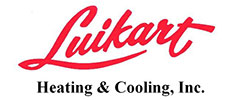
We spend lots of time indoors. As a matter of fact, the Environmental Protection Agency (EPA) has estimated being inside accounts for 90% of our days. Having said that, the EPA also says your indoor air can be three to five times more polluted than outside your home.
That’s due to the fact our homes are tightly sealed to boost energy efficiency. While this is good for your heating and cooling costs, it’s not so fantastic if you’re amid the 40% of the population with respiratory allergies.
When outdoor ventilation is restricted, pollutants like dust and volatile organic compounds (VOCs) could get trapped. Consequently, these pollutants might aggravate your allergies.
You can boost your indoor air quality with crisp air and routine cleaning and vacuuming. But if you’re still struggling with symptoms when you’re at home, an air purifier might be able to help.
While it can’t remove pollutants that have gotten trapped in your furniture or carpet, it might help purify the air circulating around your home.
And air purification has also been scientifically verified to help lower some allergic symptoms, according to the American College of Allergy, Asthma and Immunology. It could also be helpful if you or someone in your household has a lung condition, like emphysema or COPD.
There are two kinds, a portable air purifier or a whole-home air purifier. We’ll examine the advantages so you can learn what’s appropriate for your house.
Whole-House Air Purifier vs. Portable Air Purifiers
A portable air purifier is for a lone room. A whole-house air purifier accompanies your heating and cooling system to clean your complete house. Some types can clean independent when your heating and cooling system isn’t on.
What’s the Best Air Purifier for Allergies?
Seek an option with a High Efficiency Particulate Air (HEPA) filter. HEPA filters are installed in hospitals and provide the most comprehensive filtration you can get, as they catch 99.97% of particles in the air.
HEPA filters are even more useful when used with an ultraviolet (UV) germicidal light. This mighty combination can eliminate dust, dander, pollen and mold, all of which are common allergens. For the ultimate in air purification, evaluate a unit that also has a carbon-based filter to decrease household smells.
Avoid buying an air purifier that creates ozone, which is the primary ingredient in smog. The EPA warns ozone could worsen respiratory problems, even when emitted at minor settings.
The Allergy and Asthma Foundation of America has compiled a list of questions to ask when buying an air purifier.
- What can this purifier take out from the air? What doesn’t it extract?
- What’s its clean air delivery rate? (A higher amount means air will be freshened more rapidly.)
- How frequently does the filter or UV bulb need to be replaced]? Can I do that by myself?
- How much do spare filters or bulbs cost?
How to Lessen Seasonal Allergy Symptoms
Want to receive the {top|most excellent|best] outcome from your new air purification system? The Mayo Clinic advises taking other measures to decrease your exposure to seasonal allergy triggers.
- Stay indoors and keep windows and doors closed when pollen counts are heightened.
- Have other household members mow the lawn or pull weeds, since this work can irritate symptoms. If you are required to do this work on your own, you might want to consider trying a pollen mask. You should also rinse off without delay and put on clean clothes once you’re completed.
- Avoid hanging laundry outdoors.
- Run the AC while indoors or while you’re on the road. Consider using a high efficiency air filter in your house’s HVAC equipment.
- Even out your residence’s humidity percentage with a whole-house dehumidifier.
- Hardwood, tile or linoleum are the suggested flooring types for decreasing indoor allergens. If your home has carpet, add a HEPA filter on your vacuum cleaner.
Let Our Specialists Handle Your Indoor Air Quality Necessities
Ready to move forward with installing a whole-house air purifier? Give our specialists a call at 740-344-5497 or contact us online to request an appointment. We’ll help you choose the right equipment for your home and budget.
